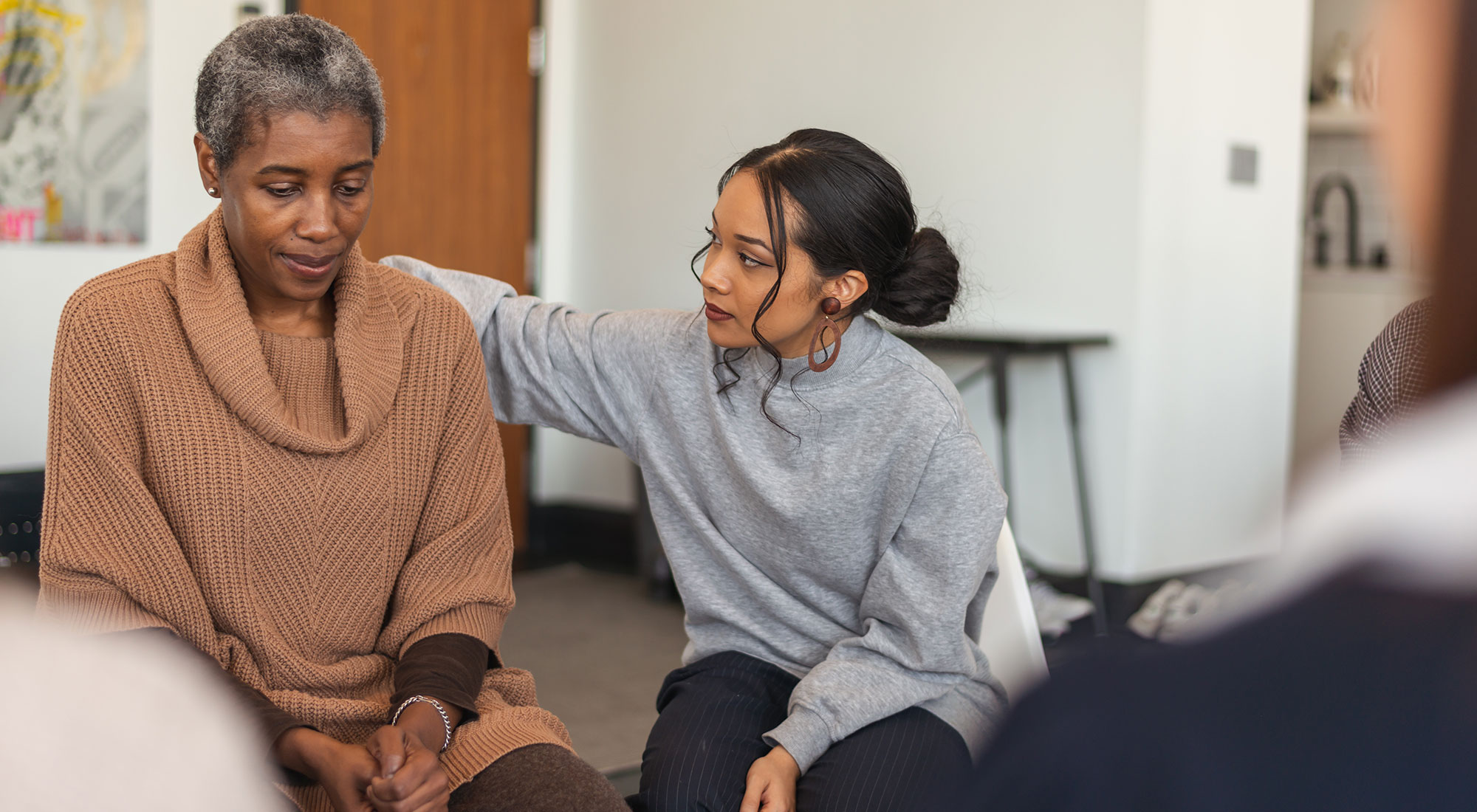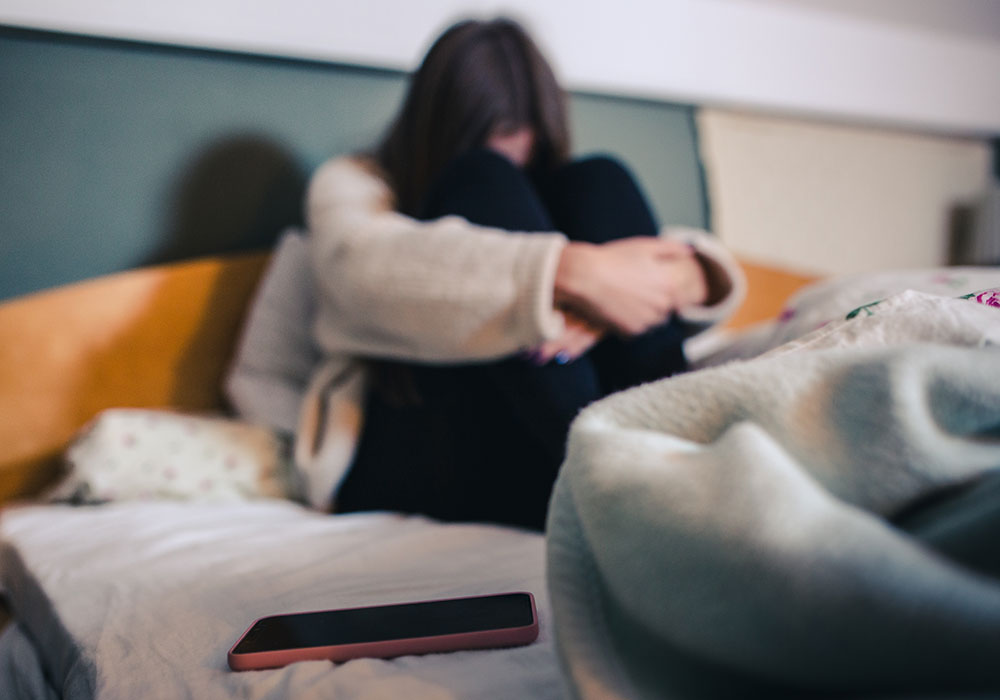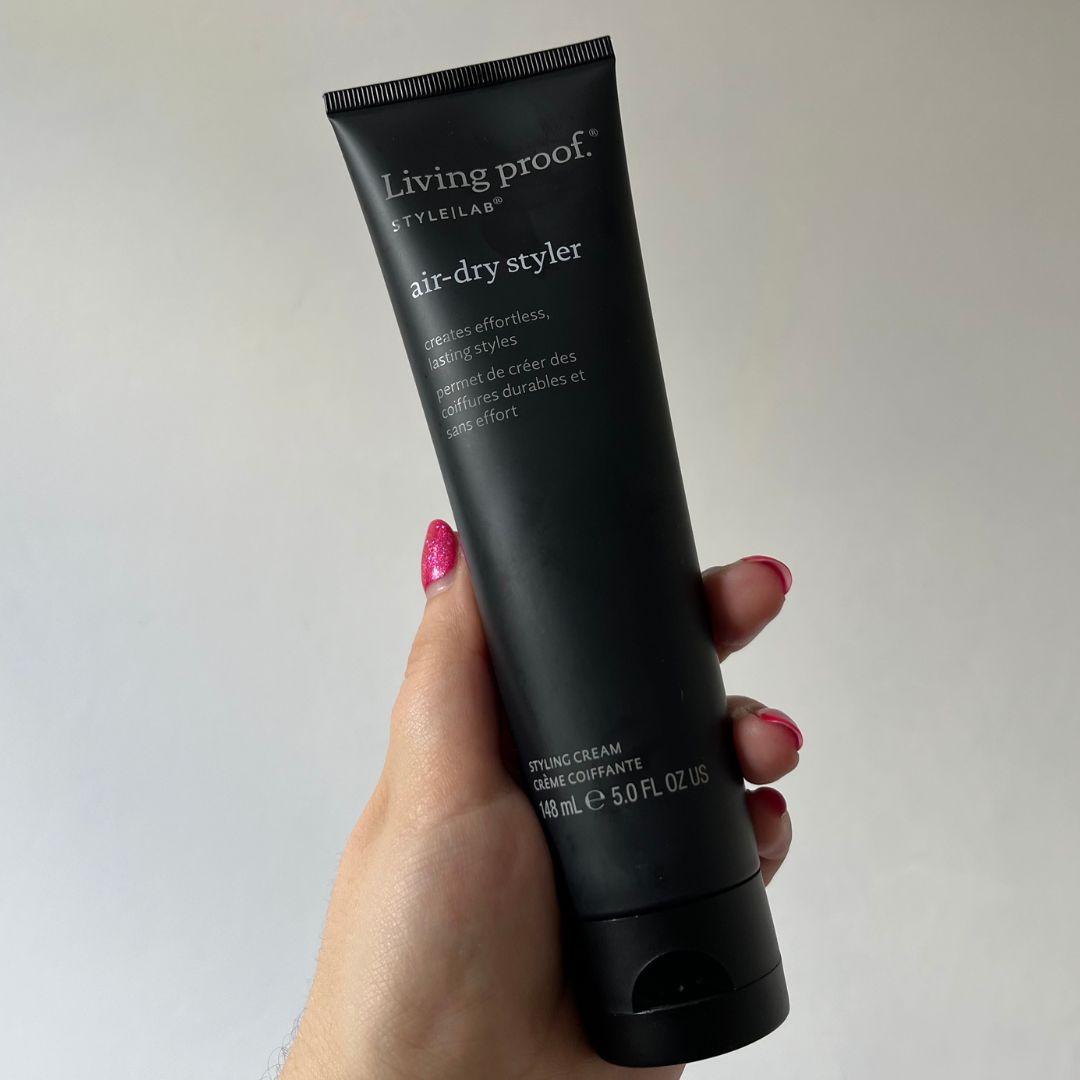Escaping My Abuser: the new Panorama shedding light on domestic abuse in lockdown

Last night, Panorama aired a one-off documentary called Escaping My Abuser.
Fronted by Victoria Derbyshire, the show explored the troubling stories of women who managed to escape from lives with abusive partners during the height of the coronavirus lockdown.
What is Escaping My Abuser?
The BBC Panorama explored domestic abuse during the UK lockdown. Specifically, it focused on the stories of women who tried to escape from situations of domestic abuse while the country was asked to stay home.
As you can imagine, the knock-on effect lockdown has had on both victims and survivors is colossal. Women in such situations often feel trapped, and that's prior to a country-wide lockdown. The government's decision to do so, however necessary to stop the spread of COVID-19, placed extra strain on many already abusive relationships.
Presenter Victoria Derbyshire also opened up about her childhood, where domestic abuse was prevalent.
How common is domestic abuse in the UK?
Sadly, far too many. Yearly, nearly 2.4 million people in the UK suffer some form of domestic abuse - that's 1.6 million female victims, or near 10% of the population, and 786,000 men.
Between March and April alone, Refuge, the UK’s largest domestic abuse charity, saw calls rise by 25 per cent and reported an increase of 700 per cent of women using the National Domestic Abuse helpline.
Marie Claire Newsletter
Celebrity news, beauty, fashion advice, and fascinating features, delivered straight to your inbox!
Seven women a month are killed by a current or former partner in England and Wales. On average, the police in England and Wales receive over 100 calls relating to domestic abuse every hour. However, it's clear this figure significantly increased during lockdown.
Although Paula Rhone-Adrien, a leading family law barrister, shares that no domestic abuse stat is reliable. "It is accepted by professionals that domestic abuse is under-reported. Due to it occurring mostly within the home, the victim is isolated and living in constant fear."
How has lockdown affected women living in abusive relationships?
Paula shares that she's seen first hand how lockdown has been disastrous for female sufferers of domestic abuse. "Victims who would normally have access to community support saw those close overnight. The ability to walk into a help centre for on the spot advice and assistance was no longer available. Abusers were now able to justify keeping their victims locked down and isolated: that offer to run to the shops so you could remain at home was now a viable opportunity to control you," she explains.
Plus, communication and contact with the outside world was reliant on technology—again, something that could be easily controlled. "Most computers and phones were likely in the sole control of the abuser and so that the precious space to breathe when you and or your abuser would go to work disappeared", Paula adds.
She also believes that the reporting on the rising numbers of domestic abuse only added to many abuse victim's anxiety, adding: "Watching the news to see when restrictions would be lifted, all victims would have seen were the rising numbers of domestic abuse cases. There were no refuge spaces left."
Saurav Dutt, domestic abuse campaigner and author of The Butterfly Room (£8.99, amazon.co.uk), agrees, sharing that lockdown undoubtedly triggered rising tensions, anxiety and stress. "Lockdown has not been a normal situation and so created a potent mix of emotions. Tempers have been flying high on what seem like small or trivial issues, leading to frequent altercations between family members."
Not only that, but many are currently worrying about money, debt or job security—another reason tensions may be running high. "The lockdown has heightened feelings of anxiety, fear and financial burden, creating stress which can manifest itself in the form of abuse. It affects families where emotional bonding is weak."
Further, the lockdown has meant abuse victims have to rely on abusers for basic necessities like food and medication, if they are shielding.
How to escape if you or someone you know is suffering
First off, do not feel ashamed. You are not alone, and this is not your fault.
1. Confide in someone
"Your first port of call is a family member or friend", shares Paula. She appreciates that may be hard when you've likely spent years attempting to project a life that's problem-free, but she urges you to try, even if you feel isolated. "They will likely understand. Being able to confide in a family member or loved one will help you start the healing process," she adds.
2. Get help from the government
If you don't have any family or friends, there are other support options for you. Have you considered contacting your local authority or the Government website? Both will provide lists of all the community groups available to assist, advises Paula.
"It doesn't have to be domestic abuse focused: you may just want someone to talk too, initially. This may allow you to find refuge in your own peace of mind. Without that, you are likely to return to your abuser, or so the statistics indicate", she concludes.
3. Connect with a domestic abuse charity
Groups like RISE are set up to help people going through exactly what you're going through. "They can move fast to protect you and any child in your care", shares Paula. Not so keen to leave your home? "There are legal steps you can take to protect yourself there, whether you are the legal owner or not. Plus, legal advice doesn't have to be expensive", she explains. At flagdv.org.uk, barristers and solicitors will offer 30 minutes of advice for free.
4. Be prepared
"The abuser is not likely to change, no matter how much they plead or apologise," shares Saurav. This is called emotional manipulation and will weigh on your emotions and make you feel you need to stay—but you don't.
When you are ready to leave and have put the right safety measures in place to make sure you don't put yourself at risk, Saurav advises taking anything you'll need with you. Think anything from clothes, to money, to medications, to birth certificates. You'll need them for both you and your children, if you have any. "Try not to tell the abuser that you're leaving. The most dangerous time for a person is when they are leaving or directly afterward, so make sure you plan ahead and keep yourself safe," she shares.
5. Read up on the resources available
Many web-based NGO’s and organisations are set up to help you. Saurav works closely with The Sharan Project, a web-based service that provides abuse victims assistance on key life skills such as health, housing, employment, education, financial, legal and personal development. Their main aim? "To support vulnerable women in their transition to independent living without fear," Saurav shares.
Remember, these organisations are set up to help. The staff are there to listen to your story without judgment and help you get back on your feet by providing support, advice and referrals.
6. Prioritise counseling
You should also consider accessing online or face to face counseling. "Sometimes it's hard to view yourself as a victim while you're in the situation. You know something isn't quite right, or that you are scared , but it's hard to admit that you are in fact suffering," shares Saurav. "It's important to seek out someone who can help you explore what's happened to you. If you don't have a solid foundation upon which to grow, that growth with ultimately fail. Spend time on yourself and your mental health," she adds.
With support, it is possible to be free.

"I was abused. It was similar to lockdown, in many ways"
Marcella spent the first half of lockdown in a refuge after her perpetrator was jailed for coercive control last year. Here, she explains the parallels between the fear of coronavirus and the fear of domestic abuse.
"Being a victim of domestic abuse puts you in a state of permanent lockdown; you’re shielding all the time, barely able to fulfill your basic needs. You’re scared to leave the house, scared to go to the doctors, scared to go to the shops, scared to go to work, scared of getting on public transport, scared of socialising."
"You have a sometimes irrational distrust of strangers - instinctively staying 2 metres away from them. You don’t want to hurt them and you don’t want them to hurt you. You also have to keep your distance from your loved ones because you don't want them to get hurt by association. None of your loved ones can come to visit you."
"My experience of lockdown in refuge almost made me feel safer than usual - we were quarantining ourselves from danger as well as Covid-19. At least with the virus, we could take preventative measures, wash our hands, keep the refuge clean, wear a mask - we had more control over this than we did in the outside world."
"But perhaps the hardest thing of all is not being able to share your overwhelming anxiety, it is invisible to others. You can’t discuss your fears on social media, allowing the reassurances of others to soothe you. You can’t video call your friends and family for their opinion because you’re terrified they won’t believe you, or that in telling them you’re putting them in danger."

Ally Head is Marie Claire UK's Senior Health and Sustainability Editor, nine-time marathoner, and Boston Qualifying runner. Day-to-day, she heads up all strategy for her pillars, working across commissioning, features, and e-commerce, reporting on the latest health updates, writing the must-read wellness content, and rounding up the genuinely sustainable and squat-proof gym leggings worth *adding to basket*. She also spearheads the brand's annual Women in Sport covers, interviewing and shooting the likes of Mary Earps, Millie Bright, Daryll Neita, and Lavaia Nielsen. She's won a BSME for her sustainability work, regularly hosts panels and presents for events like the Sustainability Awards, and is a stickler for a strong stat, too, seeing over nine million total impressions on the January 2023 Wellness Issue she oversaw. Follow Ally on Instagram for more or get in touch.
-
 Jonathan Anderson is going to Dior Men
Jonathan Anderson is going to Dior MenHis debut collection will be this June
By Mischa Anouk Smith
-
 I'm a 2025 bride and these are the best affordable wedding dresses I've found
I'm a 2025 bride and these are the best affordable wedding dresses I've foundLess than £1,000 but still the height of chic
By Sofia Piza
-
 I haven't worn my hair completely natural for years, but this air-dry styling cream has made me love my waves again
I haven't worn my hair completely natural for years, but this air-dry styling cream has made me love my waves againI will never be without this
By Amelia Yeomans